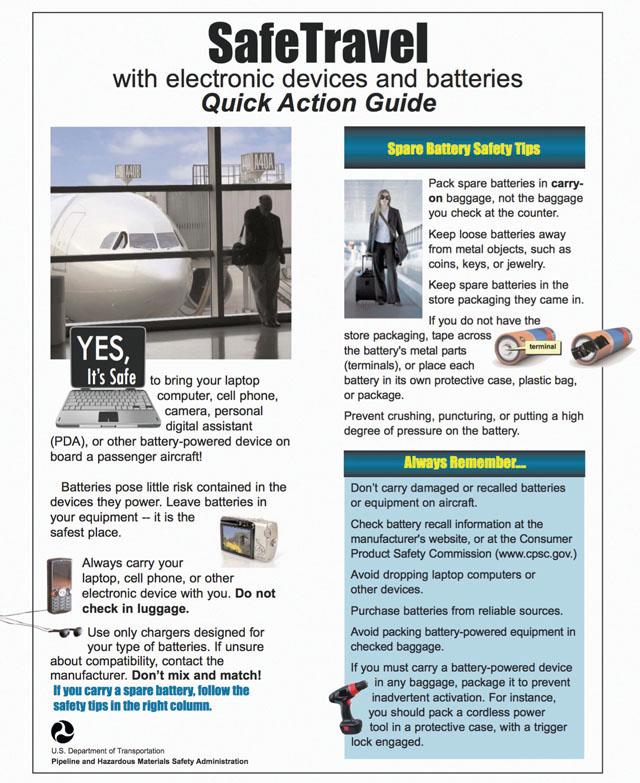Table of Contents
- Choosing the Right Spare Batteries for Your Devices
- Proper Storage Techniques to Prevent Damage and Leakage
- Safe Transportation Practices for On-the-Go Battery Carrying
- Tips for Disposing and Recycling Old or Used Batteries Safely
- In Retrospect
Choosing the Right Spare Batteries for Your Devices
Not all batteries are created equal, especially when it comes to matching them with your specific devices. When selecting spare batteries, always check the manufacturer’s recommendations to ensure compatibility and optimal performance. For devices that demand high power consumption, such as digital cameras or wireless headphones, opting for rechargeable batteries can save money and reduce waste in the long term. Conversely, for emergency kits and low-use gadgets, alkaline or lithium batteries are favored for their long shelf life and reliability. Remember to pay close attention to the battery size and voltage requirements-using mismatched batteries can damage your device or reduce its efficiency significantly.
Packaging and storage are just as crucial as the battery’s chemistry and specifications. Buy batteries in new, unopened packages and keep spares in a cool, dry place to preserve their lifespan. Avoid mixing old and new batteries or different brands in the same device, as this can lead to leakage or uneven discharge. Below are some key points to consider:
- Check expiration dates to ensure maximum shelf life.
- Label batteries if purchasing multiple types for different devices.
- Invest in quality brands for better safety standards and longevity.
- Use battery cases for safe transport and to prevent accidental short circuits.
Proper Storage Techniques to Prevent Damage and Leakage
When carrying spare batteries, preventing damage and leakage begins with how you store them. Always keep batteries in their original packaging until ready for use to shield them from accidental contact with metals or other conductive materials. If you must carry loose batteries, use a dedicated battery case or a small container with individual slots to keep each battery secure and separated. Avoid storing batteries with coins, keys, or any metal objects that could cause a short circuit. Additionally, temperatures matter-store batteries in a cool, dry place, away from direct sunlight or heat sources, as extreme heat can accelerate leakage and reduce battery life.
Another crucial aspect is regular inspection. Make it a habit to check your spare batteries frequently for any signs of corrosion, bulging, or discoloration, which indicate potential leakage. Replace any suspicious batteries immediately. For longer storage periods, consider removing batteries from devices to prevent slow discharge or damage. When disposing of old batteries, follow local regulations and avoid throwing them into household waste, as they contain harmful chemicals that can be detrimental to the environment.
- Use individual compartments or cases to prevent contact between batteries
- Store in cool, dry locations away from heat, moisture, and sunlight
- Inspect regularly for leaks or damage before use
- Remove batteries from devices if storing for extended periods
- Follow proper disposal guidelines to protect the environment
Safe Transportation Practices for On-the-Go Battery Carrying
When transporting spare batteries, prevention is key to avoiding hazards. Always separate batteries from metal objects such as keys, coins, or other conductive materials, as contact can cause short circuits or sparks. Use protective cases or plastic battery sleeves to shield the terminals, ensuring they don’t come in contact with external surfaces. Additionally, avoid carrying damaged, leaking, or swollen batteries, as these may pose fire risks and should be disposed of following proper guidelines.
Temperature control is also crucial when on the move. Keep batteries away from extreme heat sources like direct sunlight, car dashboards, or heating vents to prevent overheating and potential leakage. When storing or transporting multiple batteries, place them upright in a sturdy container with padding to minimize movement and impact shocks. Employing these smart transportation habits not only prolongs battery life but significantly enhances personal safety while you’re out and about.
Tips for Disposing and Recycling Old or Used Batteries Safely
Proper disposal of old or used batteries is crucial not only for environmental health but also for your personal safety. Never toss batteries into regular trash bins, as they can leak harmful chemicals or even cause fires. Instead, look for designated battery recycling points often found at electronics stores, community recycling centers, or hazardous waste collection events. Storing old batteries separately in a cool, dry place and avoiding contact between terminals by covering them with tape minimizes the risk of short circuits during transportation.
When ready to recycle, keep in mind these important tips to make the process smooth and safe:
- Check local regulations to ensure batteries are disposed of legally and follow recommended collection procedures.
- Group batteries by type – lithium-ion, alkaline, NiMH, etc. – to facilitate proper recycling.
- Use certified battery recycling programs that guarantee environmentally responsible processing.
- Never dismantle or puncture batteries yourself, as this can release toxic substances.
In Retrospect
Carrying spare batteries might seem like a simple task, but doing it safely and smartly is essential to ensure your devices stay powered without any unexpected hazards. By following these top tips-proper storage, avoiding contact with metal objects, and choosing the right carrying cases-you can protect your gear and yourself from potential risks. Whether you’re a frequent traveler, a busy professional, or just someone who likes to be prepared, adopting these best practices will keep your spare batteries ready for action whenever you need them. Stay charged, stay safe!Check Our Other Blogs
- StunGun – Your Trusted Source for Stun Guns, Laws, and Self-Defense Tips
- PepperSprayLaws – Your Trusted Resource for Pepper Spray Information
- StunGunLaws – Your Trusted Guide to Stun Gun Legality and Safety





